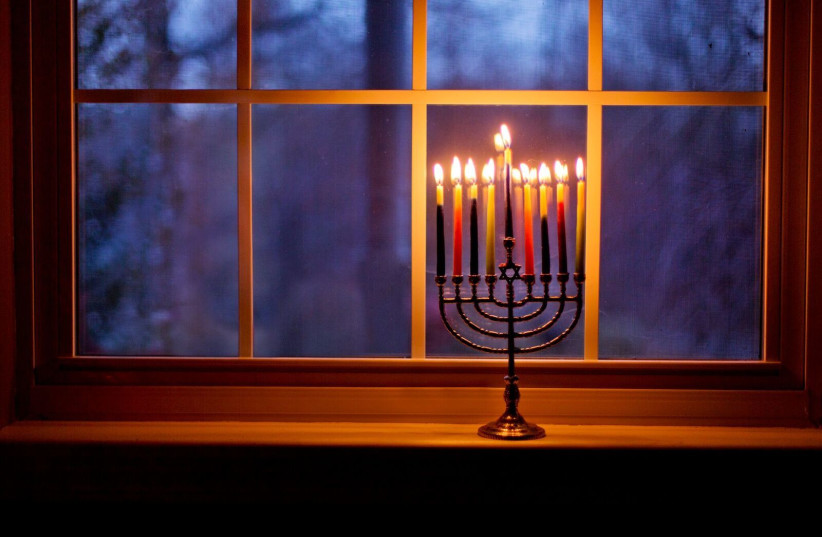I was recently speaking with a friend, a high-ranking officer in the IDF, who explained that he has colleagues who describe themselves as religious but often remove their kippot when they do their reserve duties. In their estimation, reserve duty is a uniquely all-Israeli experience and by wearing a symbol of religiosity it brands them in ways that can place barriers, and impair the unity and camaraderie that is central to the army experience.
Hearing this was very saddening for me because I have always worn my kippah with pride and as a symbol that can serve to bridge worlds.
It’s certainly possible that this is just an anecdotal occurrence but I fear it is indicative of an expanding gap between the religious Zionist and general Israeli communities. It deserves to be recognized as a wake-up call, demanding we ask serious questions about what is happening in our society.
As we celebrate Hanukkah, I recall an experience seared in my memory that occurred some 30 years ago, when I was a young member of Bnei Akiva. Our madrichim (counselors) invited us to organize a Hanukkah prom for our group. We carefully planned the music, decorations and food, and dressed up for the big party.
But when we got there, the madrichim greeted us angrily and yelled at us. How could we have possibly thought that it was right to participate in a prom, the concept of which is linked to those very ideals of hedonistic materialism that the Maccabees fought so hard to eradicate?

How have we not learned from the lessons of our past?
I often recall that story because while it might have been intended to teach a basic lesson that we are not people of material values, it missed a bigger point that I, perhaps, only began to understand later in life.
Rabbi Ronen Neuwirth once raised the question of why we often fault the Greeks for representing the world of materialism, for they too were some of the first and greatest thinkers in the world of philosophy.
IN HIS book Moadei HaRe’iyah, Rabbi Moshe Zvi Neria discusses Rabbi Kook’s explanation for the essence of our battle against the Hedonism of ancient Greece. The Greek way of life can be described by two opposing trends where a man needs to choose between materialism and spirituality. It is a black-and-white existence whether one is either a materialist or a spiritualist.
Judaism on the other hand believes that there is substantial room to live in both worlds: to exist between heaven and earth. One can be both immersed in the spiritual while at the same time enjoying materialism.
All these centuries after the Hanukkah story, our task remains to highlight our unique ability as individuals and as a nation to live in both those worlds. In our everyday lives that means finding avenues to combine and unite values that some might see as different. In Judaism, this ability not only coexists but is actually central to our identities: Religion and Zionism, work and Torah study, the people of Israel with the Jews of the Diaspora.
I humbly believe that there is no community that is better positioned to accept this mantle of responsibility, the mantle of national unity, than we as religious Zionists, for our lives have long been characterized by our placement in two worlds, the modern and the traditional. I furthermore recognize that bridging those two is not always without challenges. But the easy path has never been the Jewish path and we can never be diverted from a goal because of its complexities. When we work hard we can achieve so much – and overcome even the most divisive of debates and find room for common ground.
It is for this reason that I found my friend’s report about reluctance to proudly wear a kippah that much more painful. The Hasmonean family was a family of kohanim, the spiritual leaders who were also the physical leaders of the war against the Greeks. We are not talking about a group of people who were only tasked with military training day in and day out but rather those who served the people in the holy work of Temple and in times of war lead the nation in battle.
As Jews, our uniqueness and indeed our power is that we don’t need to choose religiosity over modernity, nor modern values over spiritual ones. Just as the Maccabees, we can and should proudly serve in both the spiritual and physical world, striving for harmony between them. Both can and must coexist and we should never be ashamed of that reality because it is what makes us who we are in the past, the present and the future.
The writer is the head of the Center of Religious Affairs in the Diaspora and a senior representative of World Mizrachi in the World Zionist Organization.
